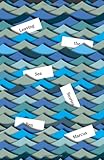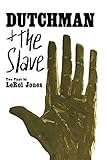I am a slow reader. And it has taken me nearly a lifetime to embrace this—to see this potential flaw as a feature not a bug (as they say in certain northern California circles). My lack of speed must have been apparent from an early age, because when I was young my parents enrolled me in a speed-reading course, which was held in what felt like the basement of a used bookstore on a former main street in a town just west of Kansas City.
I hated those classes.
Speed-reading trains you to expand your field of view to process chunks of texts—phrases and lines first, then entire paragraphs and pages—not individual words. You’re meant to absorb the content as if by osmosis. The sessions in that basement felt like a literal death by 1,000 paper cuts as the pages flew by.
I was miserable enough to eventually commit myself to the opposite task: of unlearning the speed-reading process; reading slower, not faster; focusing on words, not pages. And as I did, a few things became clearer—that I enjoyed the language, the syntax and cadence a writer used to tell her story more than the actual plot, more than the resolution of an imagined conflict, more than the journey the author was trying to take me on. These inclinations have coalesced into a practice of finishing fewer books, re-reading more, and re-reading books I’ve just finished.
In this tumultuous year, this practice has helped me find refuge in books I’ve already read, and I reread more this year than in the past. Places where I found comfort: Baudelaire’s Paris Spleen, which provokes in me my only desire to learn French—to read this work in its original language.
As the pandemic lockdowns began, I reread Ben Marcus’s 2014 short story collection, Leaving the Sea, primarily for the story “On Not Growing Up,” which I love. It’s an interview with a (fictional) expert on childhood regression. There’s something riotously funny about this pseudo-scientific, anti-maturity expert—perhaps because I identify with the need to unlearn, and this year has been nothing if not a series of unlearnings.
Another pandemic-inspired reread was William S. Burroughs‘s Cities of the Red Night, which I hadn’t picked up since high school and read this time for the novelty of the viral plague. Hindsight says that my giddy anticipation at rereading this “prescient” book was unnecessary, but it seemed like a good enough excuse to read Burroughs.
I also reread Michael Ondaatje’s The Collected Works of Billy the Kid, which is the spiritual model for the next project I’m working on: A book about camels in the antebellum U.S. Army, and a Syrian-Greek, but perhaps Turkish, Muslim-convert camel driver who rose to regional fame in western Arizona. He went by the name Hi Jolly. I’ve amassed and am starting to read a number of camel-related sources, including Christina Adams’s book Camel Crazy, which documents her search for camel milk in the U.S., the Middle East, and India as a cure for her son’s autism.
Along those lines, I’m currently reading Téa Obreht’s novel Inland, in which Hi Jolly makes an appearance. As is often the problem when you’re reading a work that overlaps with your own, Obreht’s book has brought up all sorts of imposter syndrome feelings about my own writing that I’m trying to subsume. (Mostly by not writing, but that’s for another article.)
I’m a huge fan of work that borrows from historical circumstance but bends it to suit an alternative narrative purpose, and I read Jonathan “Swifty” Lang’s violent and dynamic graphic novel Meyer, which is inspired by the real life mob accountant Meyer Lansky. I’ve known Swifty since we were shooting short films on 16 mm, black and white reversal in Washington Square Park in the 1990s, and it felt like an accomplishment that we both had books launch around the same time. (My novel Kansastan came out last fall.)
Another book that I enjoyed this year that plays with historical circumstance was Jordan Rothacker’s The Death of the Cyborg Oracle, which borrows from disparate religious traditions to create a Greek tragedy set within a Blade Runner-like noir.
I’m probably not alone when I say that I identified strongly with themes of isolation, asynchrony, and discordance this year, mirroring our catastrophic social and political reality as Americans. I picked up Mohamed Asem’s Stranger in the Pen at the AWP conference in San Antonio, which in retrospect should never have been held because of, you know, the imminent pandemic. (Next year’s AWP has been moved entirely online, and it was, of course, the year that the conference was to take place in my hometown.)
Just as I returned from AWP to Los Angeles (where I reside), the coronavirus lockdowns began, and I had Asem’s meditative book to provide a structure to the limbo we were facing. In Stranger, Asem finds himself trapped in a windowless, customs and immigration interrogation room in London’s Gatwick Airport, and he uses this isolation to reflect on his statelessness. I’ll admit that I have been in similar situations and accomplished far less. It feels like we are all now in that windowless room, waiting while a dysfunctional bureaucracy determines our fate.
Another work I felt connected to this year was Johanna Stoberock’s Pigs. Ostensibly a fable about environmental catastrophe and community responsibility, Pigs features a group of children who are abandoned on an island and who are forced to feed the trash that washes ashore to the titular pigs. The few adults on the island hold lavish parties while the children toil—a perfect metaphor for this terrible year.
I also read a lot poetry, which I often turn to when feeling burnt out from trying to write or just burnt out in general—which was much of this year. I picked up three very different collections from authors I met while on book tour (late last year and early this year): Michelle Peñaloza’s Former Possessions of the Spanish Empire, Look Look Look by Callista Buchen, and The Space Poet by Samantha Edmonds. The latter two works are vaguely science-inspired, which I love because I do a lot of science journalism, while the former is a beautiful and granular exploration of Filipina-American culture.
One of the few activities deemed COVID-friendly is the sport of tennis, which is convenient for me because asides from writing it is the thing I attempt to do and fail most often at. I finally picked up Andre Agassi’s biography Open, which rightly received acclaim when it came out more than a decade ago. Agassi’s competitive nature, forged by an old-school Iranian immigrant father, his seemingly photographic memory, but also his deep hatred for the sport he played, and his, yes, isolation on the court all resonated with me.
As the Black Lives Matter protests gained a renewed urgency this summer with the murders of George Floyd and Breonna Taylor, I thought about how America has with every generation strategically ignored the systemic racism that enlivens and enriches so many of its citizens. This reminded me to reread Amiri Baraka‘s 1964 play The Dutchman, which ends with a white woman stabbing a knife into the back of young Black man who she was attempting to seduce on a subway train. It’s not subtle. And I thought of it again as toxic whiteness performed its indelicate surgery into the backs of Americans during the presidential election.
With the election mostly behind us save for some intemperate tweets, I have been able to savor one consistent source of escape: the letters that arrive each week in my CSA box. I’m not certain that Farmer Thaddeus, who claims credit for the words, is a real person. He might be a fictional amalgam whose letters have been workshopped by California advertisers to sell more produce. But each week, I find Thaddeus’s letter tucked between the apples and the kale, and he brings news of the farm: what crops are in season; what the hawks and possums are up to; what formation and direction the birds are flying in; what the state and composition of the soil is—what can grow and what cannot. For someone who eschews reading quickly, these letters have become a salve on and escape from whatever new and horrific news the world has sought to produce. I read these letters slowly. And then I read them again while the kale rests on the kitchen counter, wilting.
More from A Year in Reading 2020
Don’t miss: A Year in Reading 2019, 2018, 2017, 2016, 2015, 2014, 2013, 2012, 2011, 2010, 2009, 2008, 2007, 2006, 2005




















